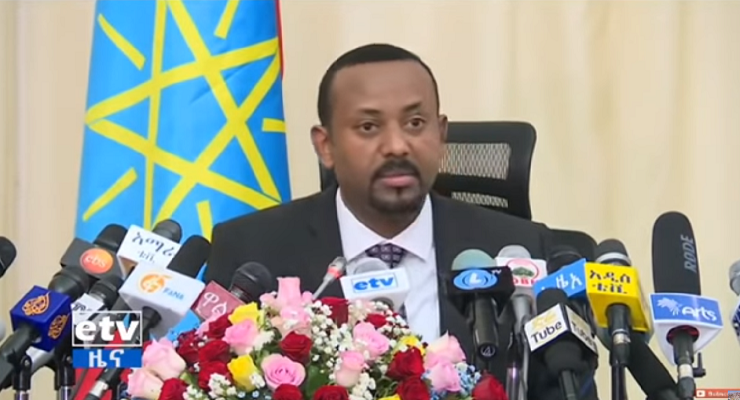
Ethiopia’s prime minister in his first press conference since taking power vowed Saturday to continue with dramatic reforms “at any cost” and said the longtime ruling coalition soon will prepare for a “free and fair election” in 2020.
Prime Minister Abiy Ahmed also said the World Bank “soon” plans to provide $1 billion in direct budgetary assistance, a sign of confidence after years of unrest in Africa’s second most populous nation. Such assistance stopped after the disputed 2005 elections.
“My dream is that doubts about the ballot box will disappear,” Abiy said, saying the vote won’t be delayed and promising a peaceful transfer of power if he loses.
The 42-year-old Abiy took office in April and shocked the country with a wave of reforms including restoring diplomatic ties with neighboring Eritrea after two decades, pledging to open up state-owned companies to outside investment and releasing thousands of prisoners.
The reforms have been praised by the international community and attracted investors interested in one of Africa’s fastest-growing economies.
Recent ethnic unrest in various parts of Ethiopia, however, has dampened the initial jubilation and posed a major challenge to the new leader.
“There are groups that are working in unison to cause chaos in different parts of the country,” Abiy told reporters. “They are triggering peoples’ emotions to this end.”
Some 2.8 million people have been displaced by the unrest, according to the United Nations. “But this didn’t happen due to the reforms,” the prime minister said.
He said the unrest in the eastern Somali region has calmed but measures will be taken against former officials, including the region’s former President Abdi Mohammed Omar, who is suspected of orchestrating the chaos earlier this month that led to the destruction of government offices, looting of businesses and burning of churches.
Asked about internet cuts in the region following the unrest, an unpopular tactic widely used by the previous government, Abiy appealed for understanding and said it might have saved lives.
“But curbing access to information and cutting the internet is not the way forward,” he added, and urged youth to use it responsibly.
The prime minister also in recent months has welcomed a number of once-exiled opposition figures and groups back to Ethiopia and invited them to join in the political conversation.
But on Saturday he drew the line at former military dictator Col. Mengistu Hailemariam, who overthrew the last Ethiopian emperor, Haileselassie, in 1974 and eventually was sentenced to life for spearheading a “Red Terror” that killed tens of thousands of people. He fled the country in 1991 as rebels, who now make up the ruling coalition, approached the capital.
Some Ethiopians have called on Abiy to offer Mengistu amnesty after a rare photo of him in exile in Zimbabwe went viral early this month.
“Ethiopia’s constitution clearly stipulates the ‘Red Terror’ crimes cannot be covered under an amnesty law,” Abiy said. “So Col. Mengistu will not … return home. But if the law in the future allows, that may change.”
Leave a Reply